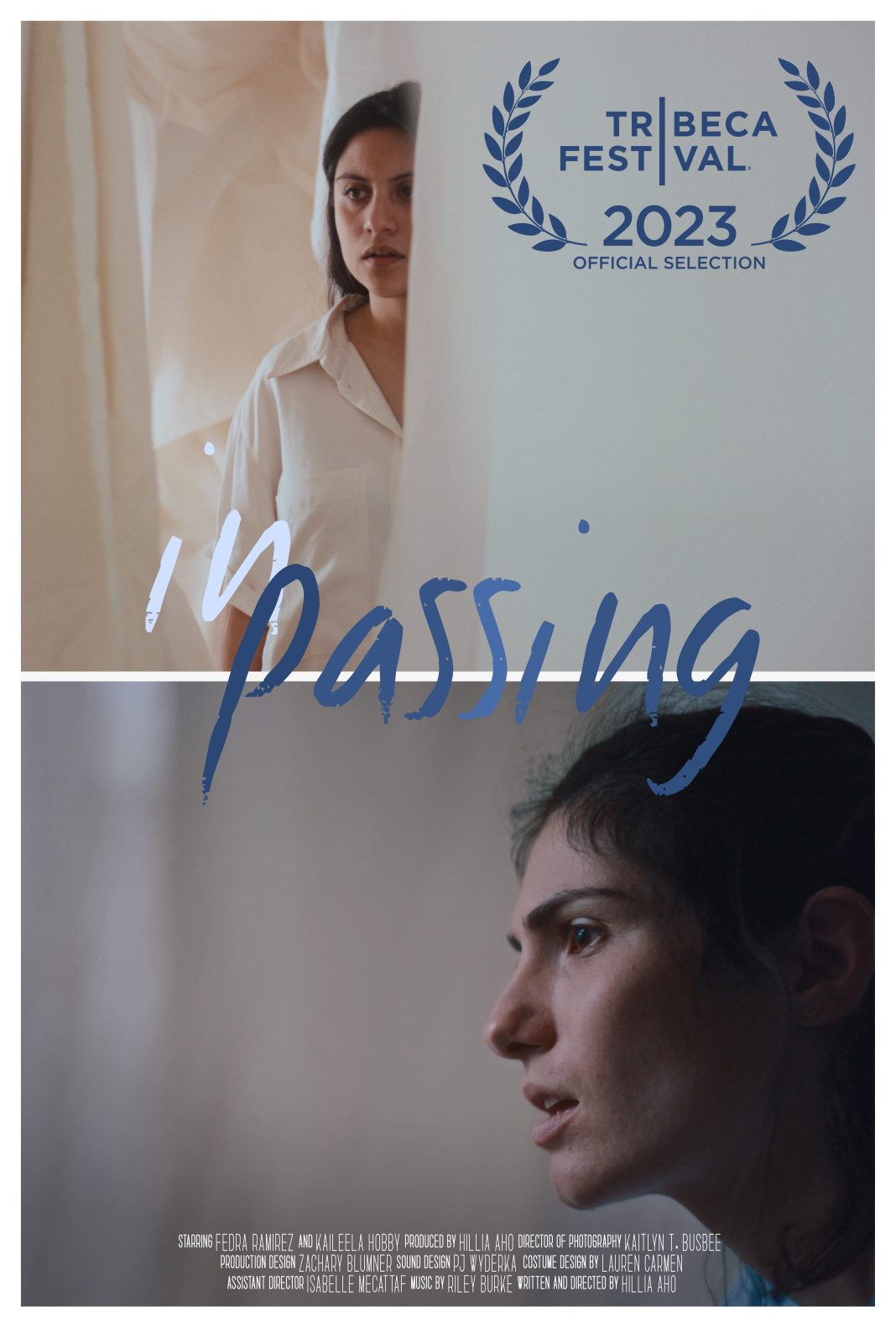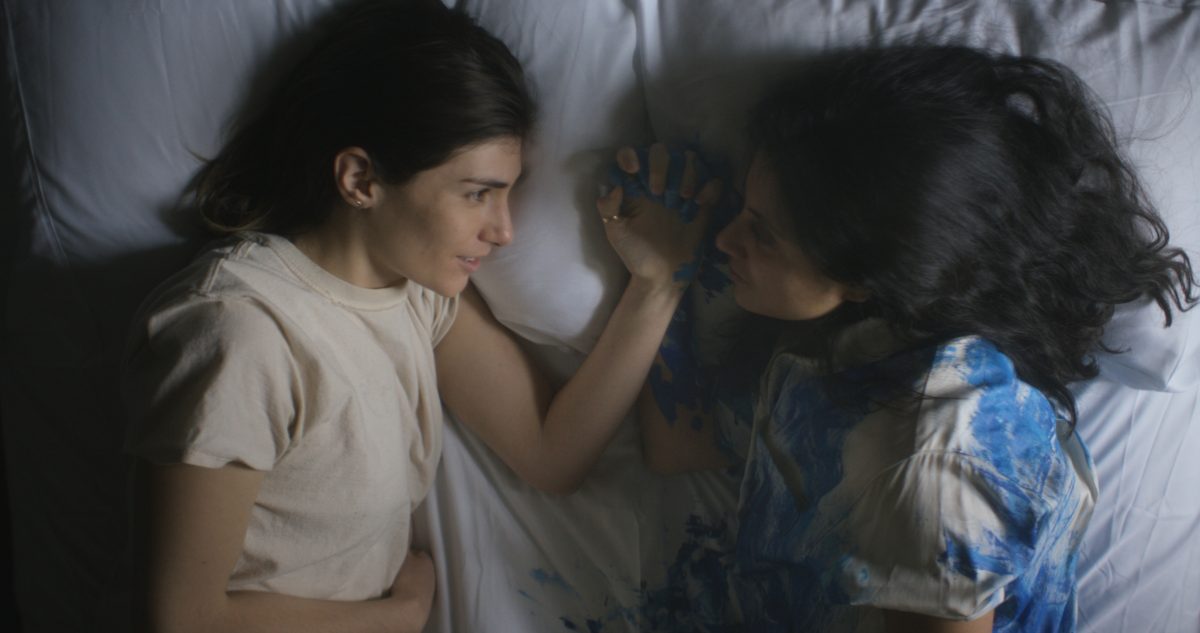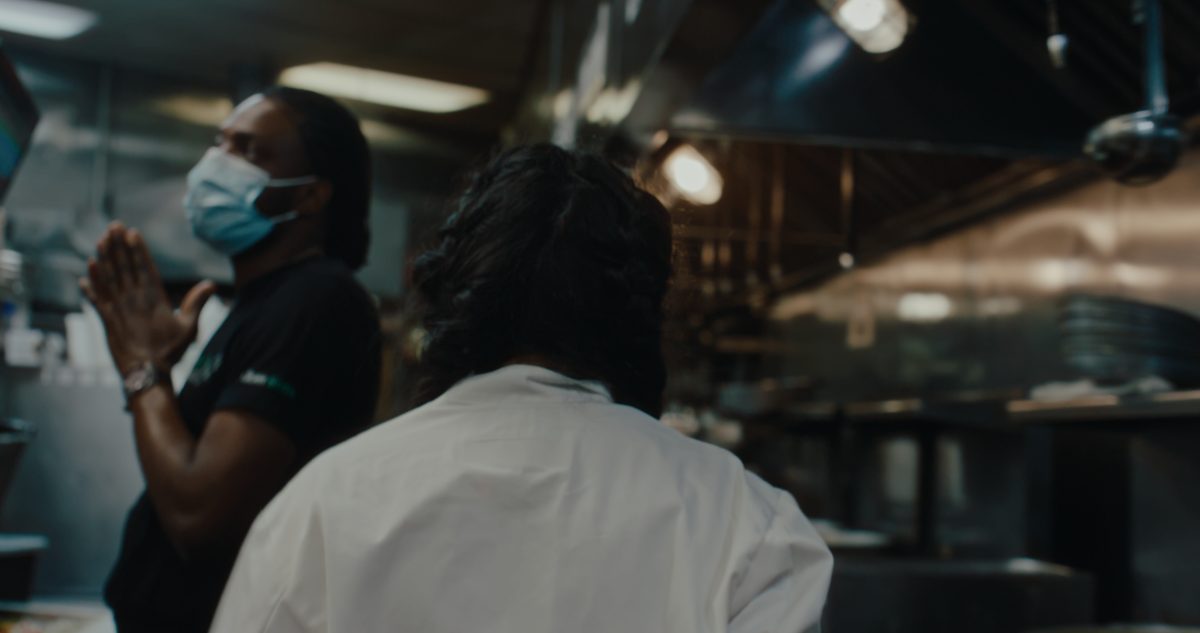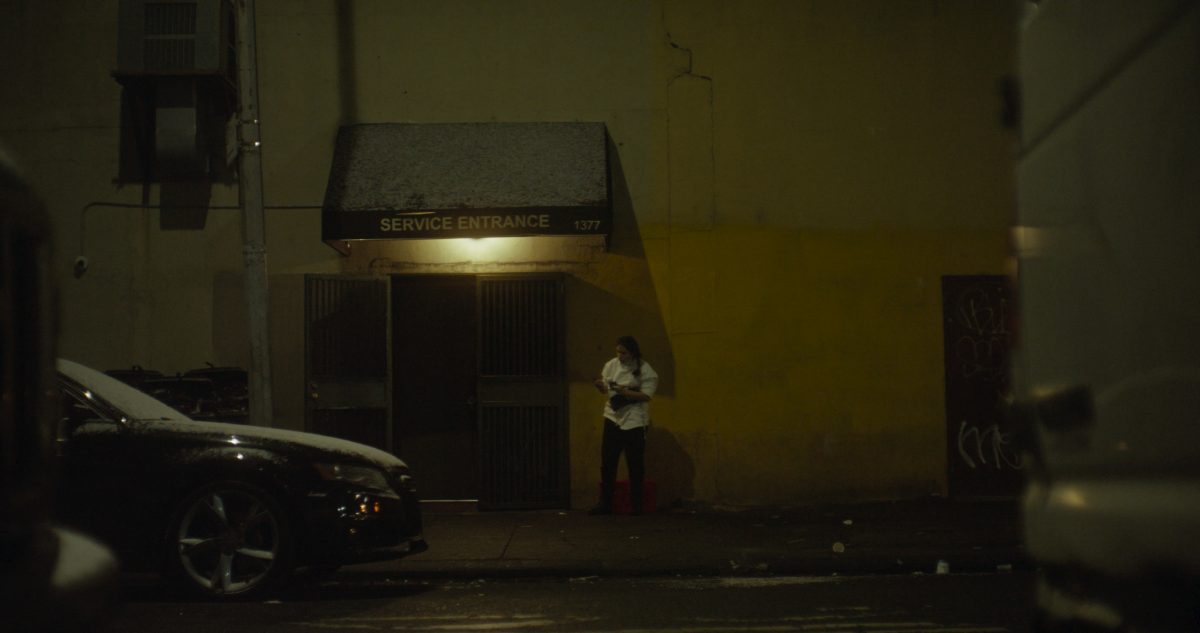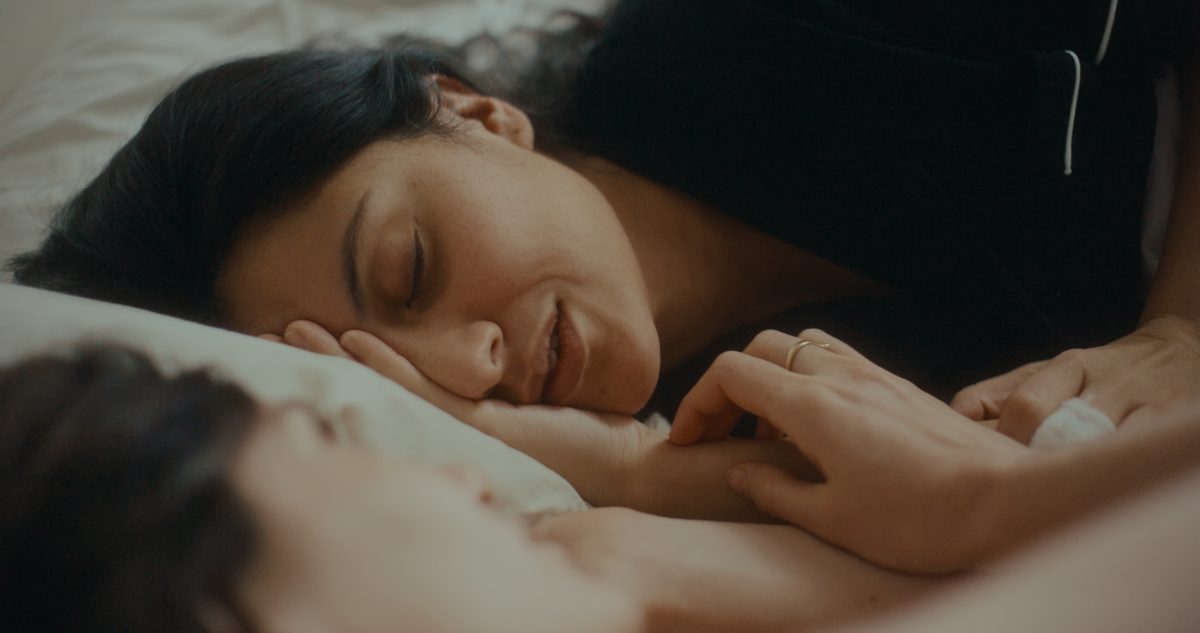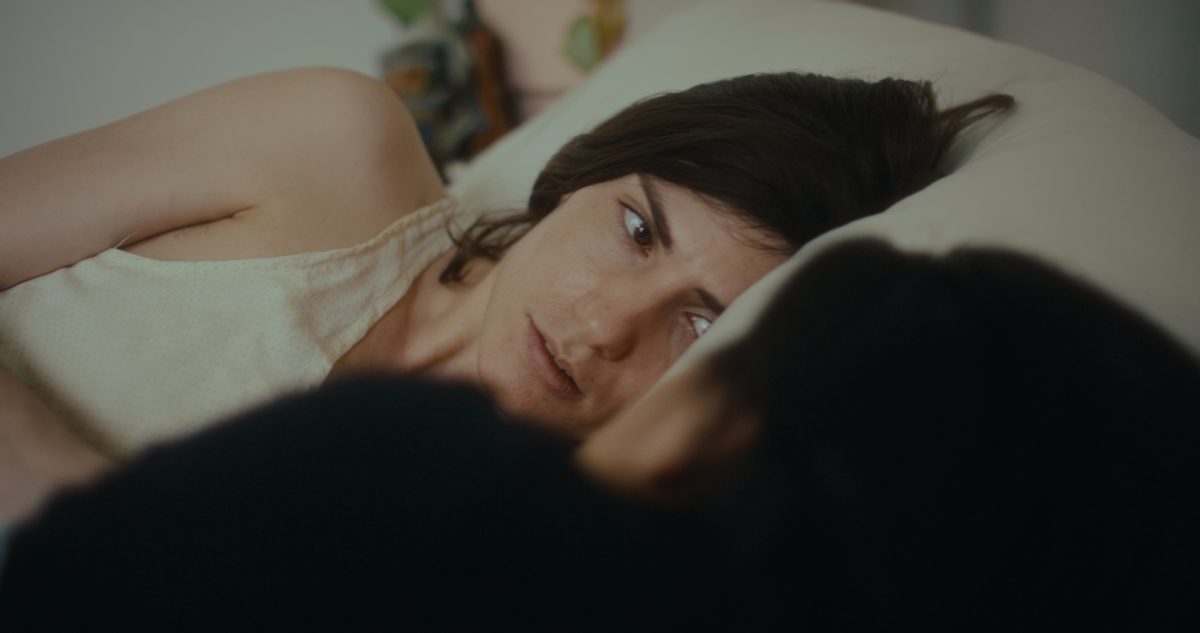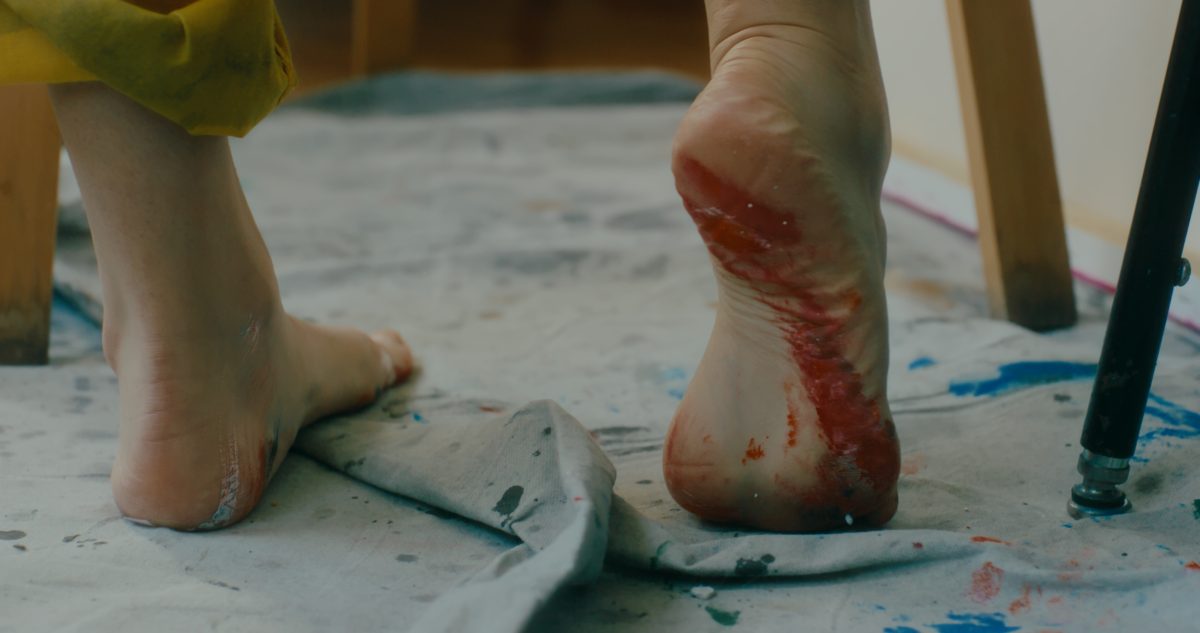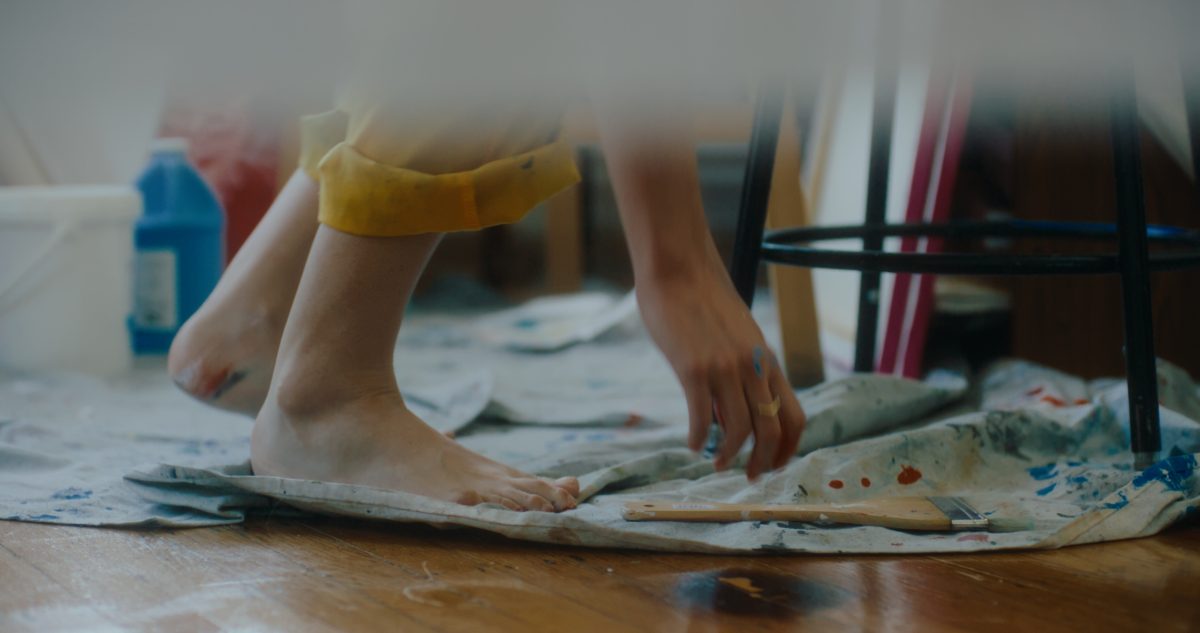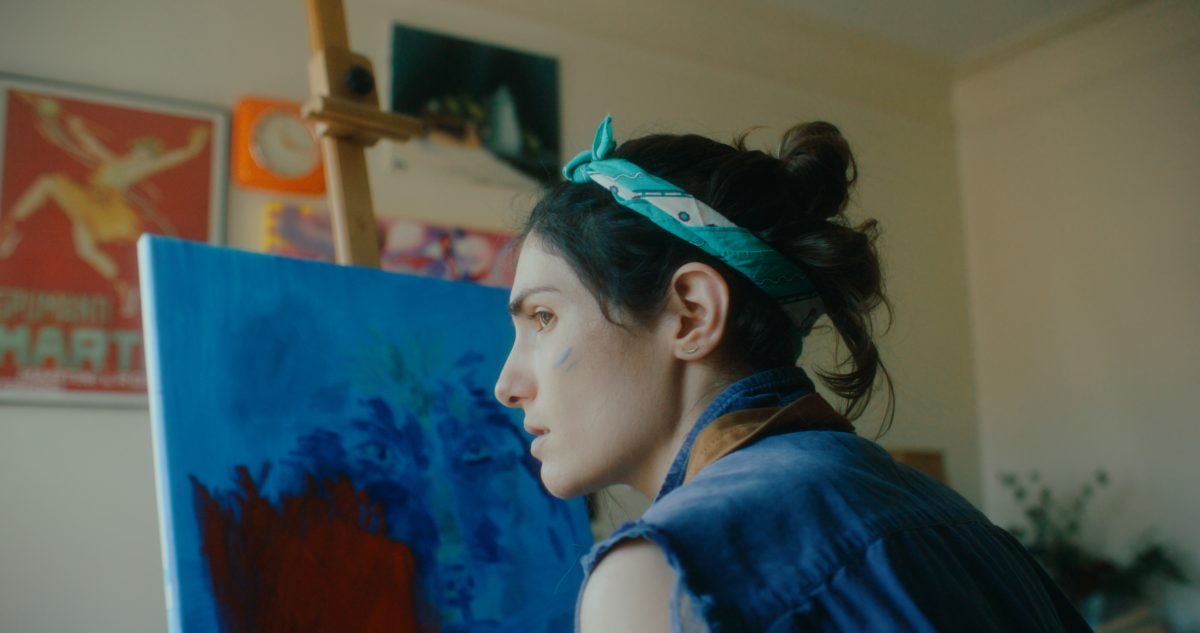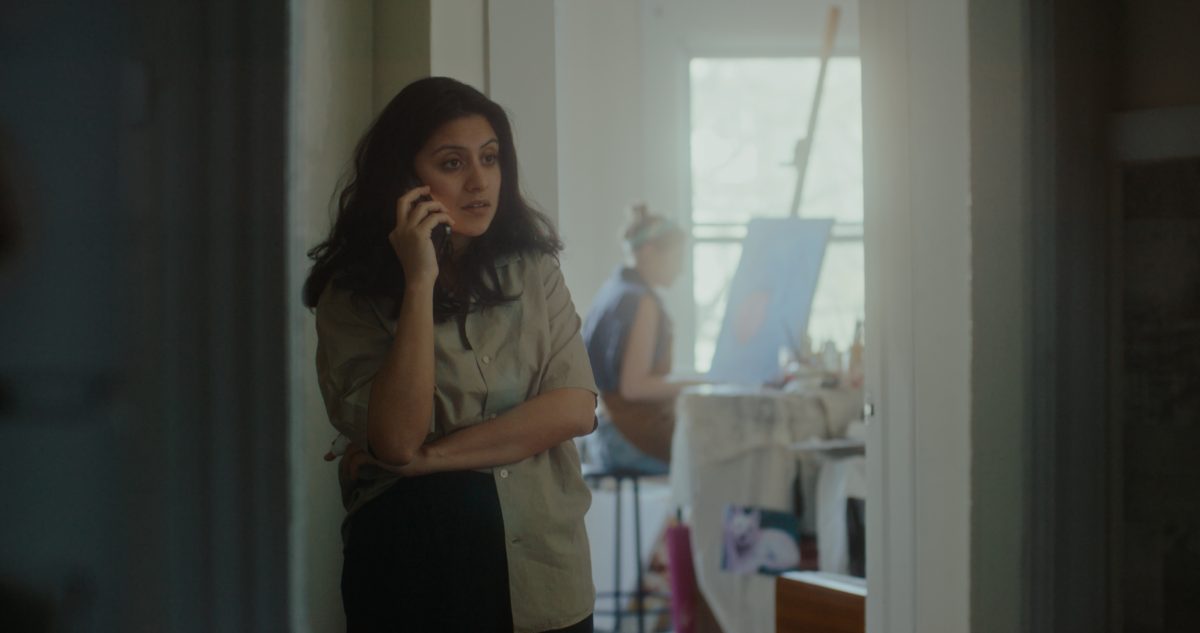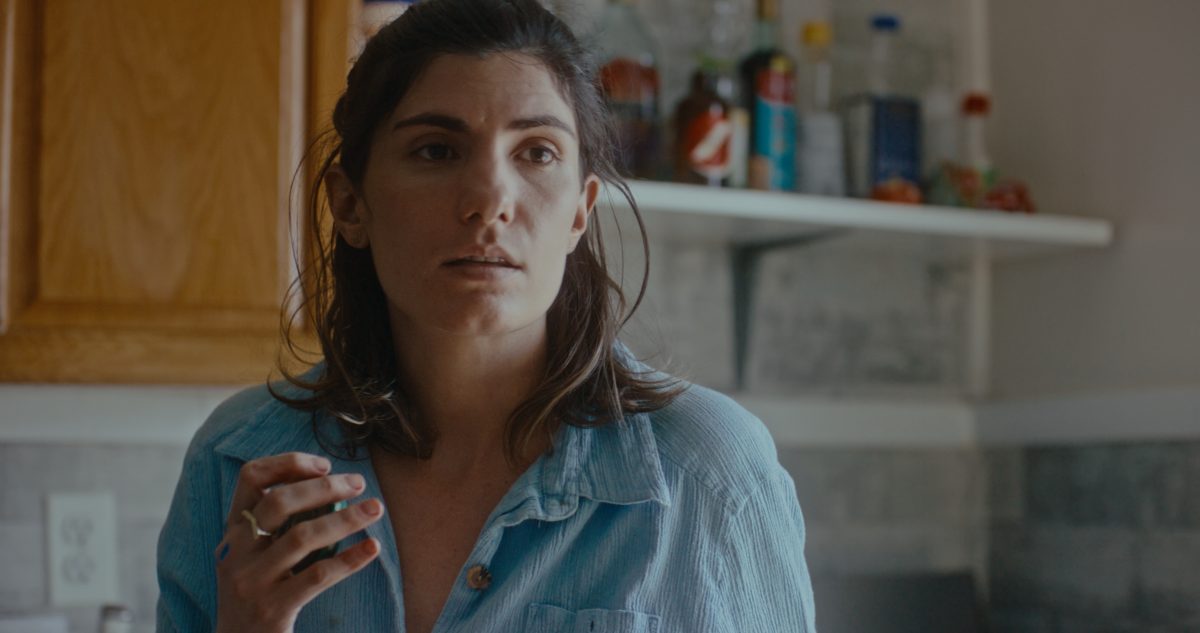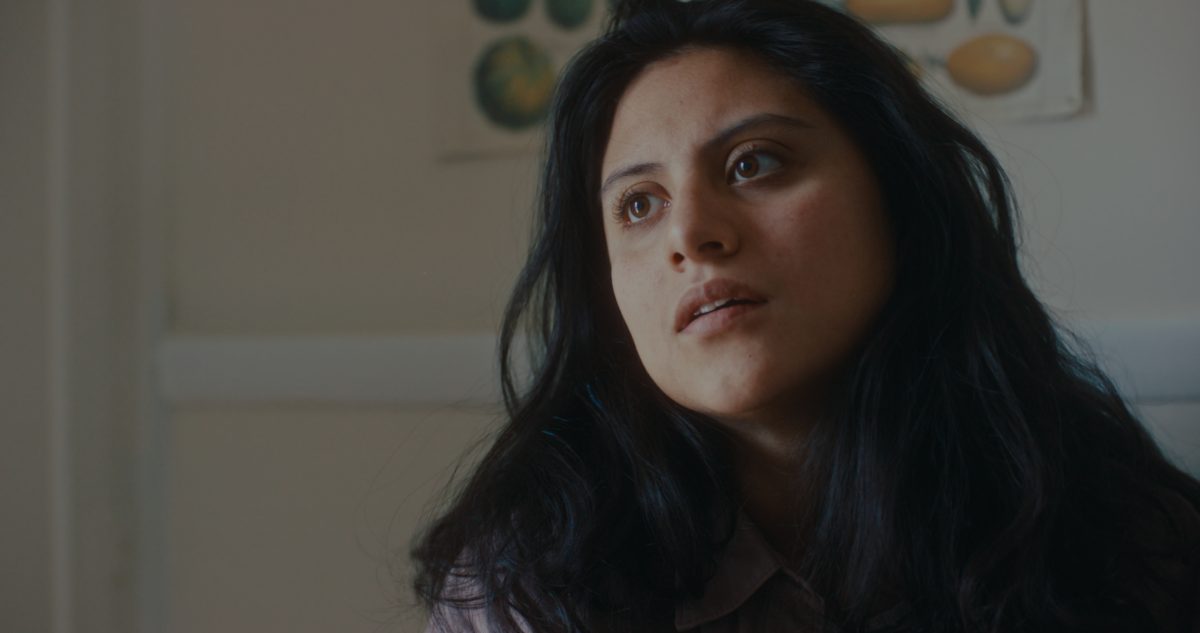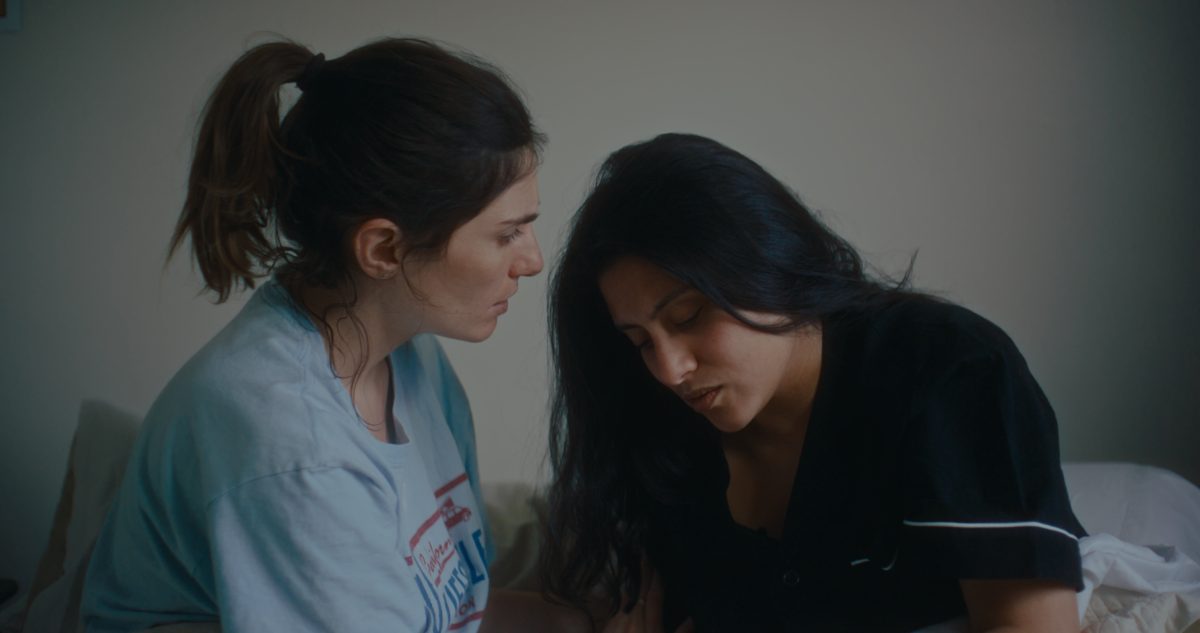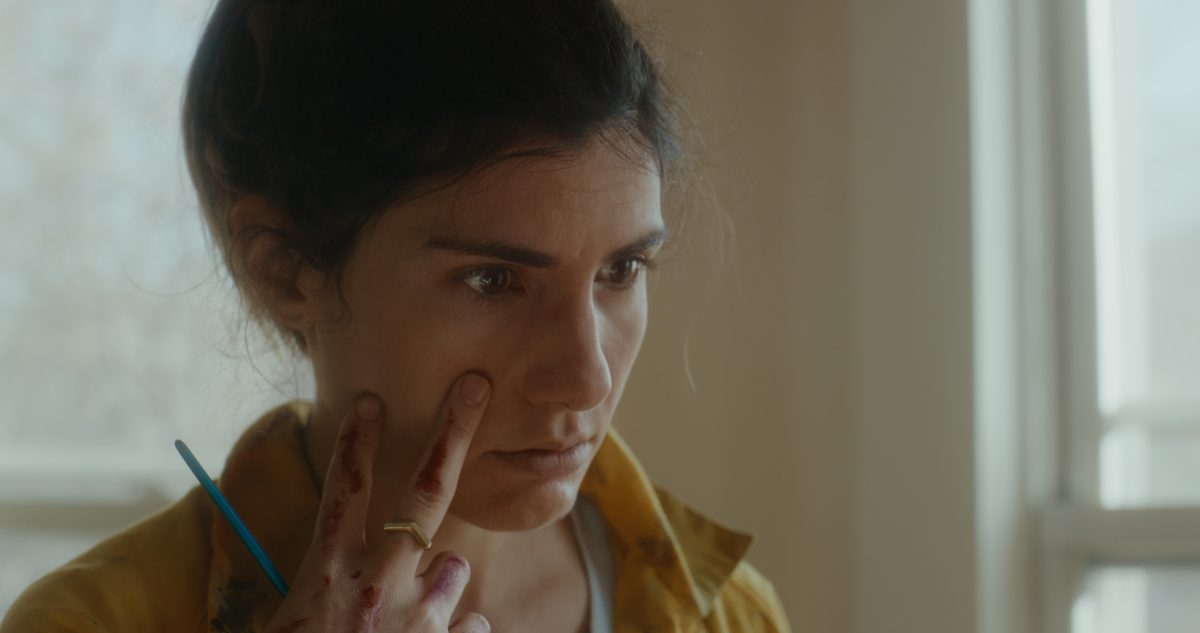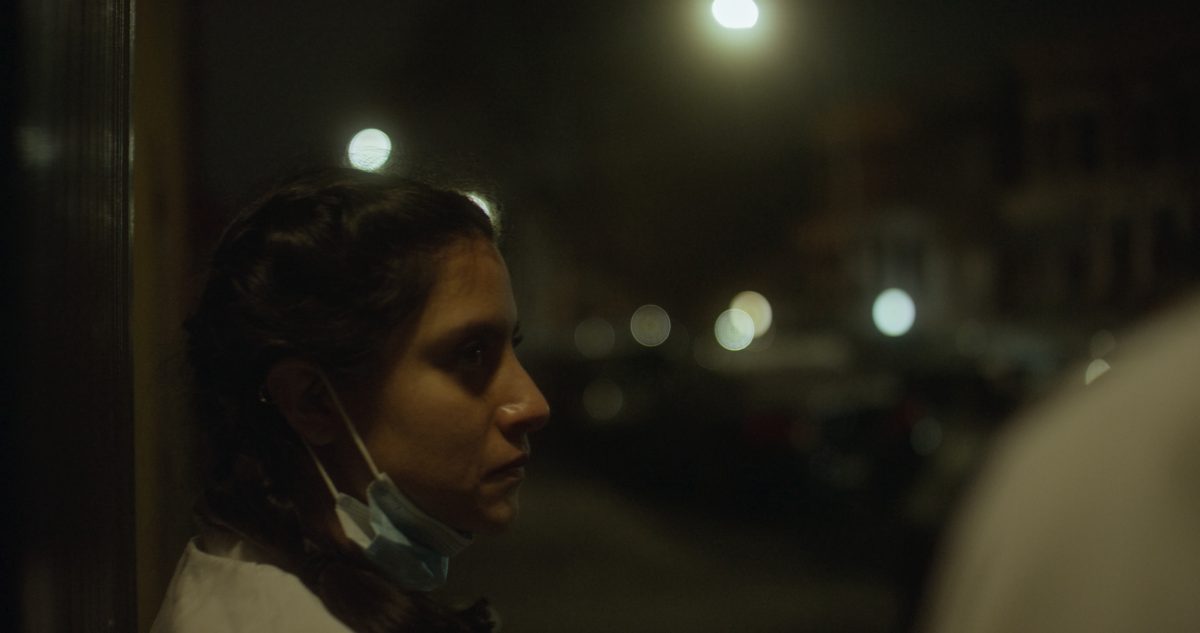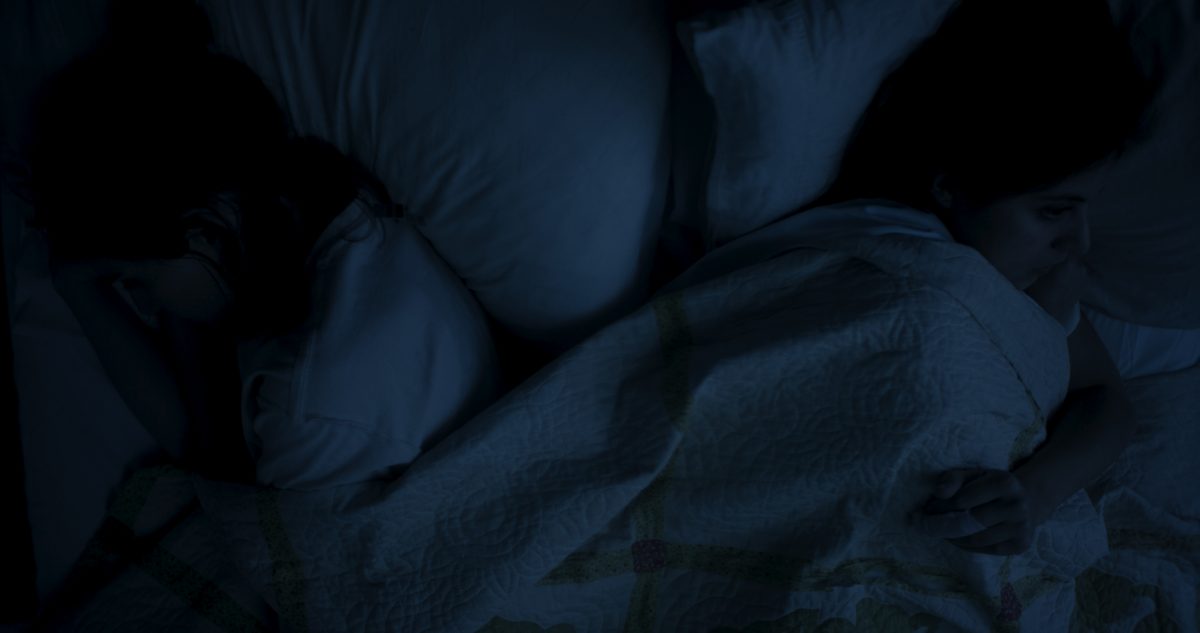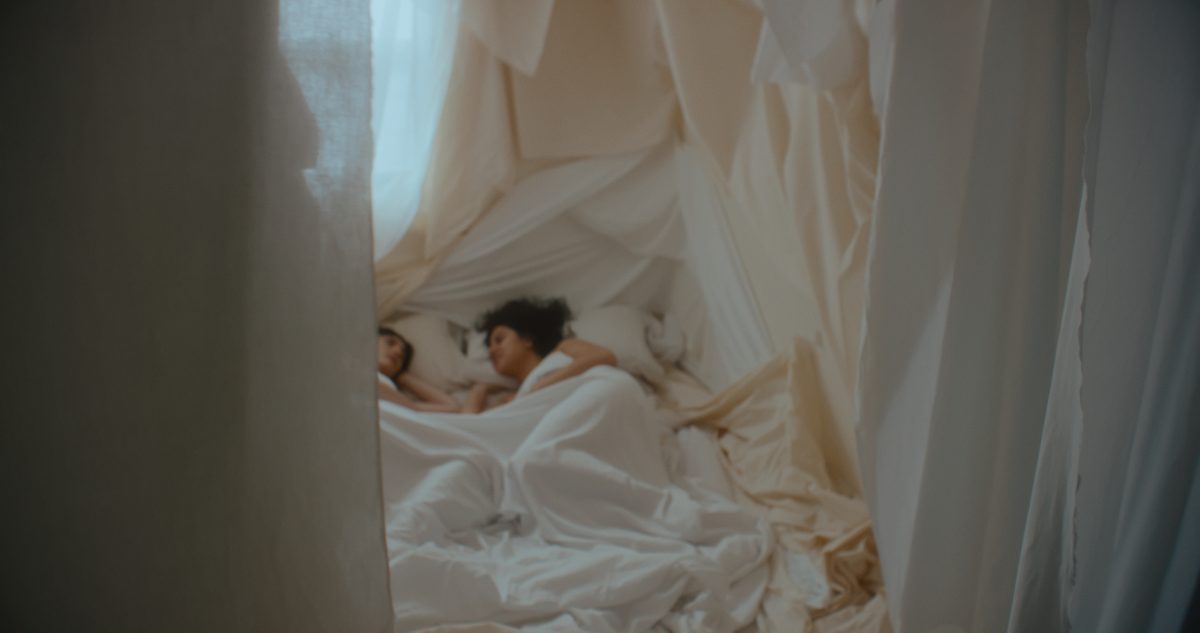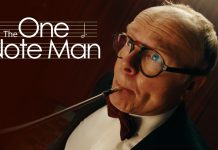Hillia Aho focuses on the challenges of a work life balance in the new short drama IN PASSING.
Film And TV Now spoke with the film-maker about the short.
The short focuses on the dynamic of relationships and the fragility that can sometimes hits us as we develop as humans. What was the start-off point for the short?
The short definitely focuses on a relationship dynamic and human fragility, but specifically induced by the need to make money.
I began writing the script in 2021, when many people were examining their relationships to work, prompted by the pandemic. I was interested in telling a story about burnout, inspired partially by my partner’s job at the time (a support worker for at-risk youth), and partially by my own musings on making the switch from creative academia into the film industry.
I eventually landed on the chef and the painter because my partner is an ex-chef, and I have dabbled in painting for money, so I felt I could authentically portray the specificity in the characters’ struggles.
I then married the burnout idea with an image I’d been mulling over for a couple of years: someone ripping their way out of a painting, covered in blue paint.
The intimacy of New York streets is also touched upon briefly. What makes New York City such a special backdrop for film?
New York City is incredibly cinematic. Beyond aesthetics, I think the New York setting adds a layer of tension to the burnout storyline, what with the fast-paced culture, and high cost of living.
And though my story is not about the pandemic, I did choose for the chef to wear a mask at work, grounding it in a very specific time period in New York, where many restaurant workers were experiencing particularly stressful working conditions.
And of course New York City was hit particularly hard by Covid, so including masks in the film was a small nod to that hardship, and resilience.
Tell us about your cast.
In Passing was a collaboration between the Grad Film, Grad Design, and Grad Acting programs at NYU.
There were 6 Grad Film scripts selected, and the directors cast their films from students in the Grad Acting program. Though we’d never met in-person before I had to submit my casting decisions, I felt that Fedra and Kaileela best fit the characters I had envisioned, and I was impressed by both of their auditions.
Luckily for me, they have great chemistry, which is incredibly important for the authenticity of the story. They were both incredible to work with, and really committed themselves to the roles.
Tell us about your production team.
In Passing had a small crew of mostly queer and/or female/non-binary identifying students, many of them my friends already.
Every single person involved gave so much, and I am eternally grateful. I give so much of the credit for the success of the film to my cinematographer Kaitlyn Busbee, and my production designer, Zach Blumner, who are both brilliant creative minds, and brought so much creativity and love to the project.
Where did you shoot and for how long?
We shot three, 8-hour days, mostly in my apartment at the time, which was in Flatbush, Brooklyn. The time restrictions were perhaps the biggest challenge with this shoot, and we definitely cut a few things on set, but we made it out with the necessities, and I think we pulled it off well.
Who and what are your key cinematic influences?
I’ve most recently been delighted and inspired by the work of Céline Sciamma and Charlotte Wells.
You grew up in rural Maine, very much part of literature folklore with the work of Stephen King. Tell us about your upbringing and how does Maine shape your visual influences in a way that other American states cannot?
I grew up off-grid, in the middle of the woods.
I was given a lot of freedom as a kid, and spent a lot of time alone in nature, which had an undeniable effect on my visual and thematic fascinations as a filmmaker. I’ve shot two short films in Maine, one in 2019, and the other very recently, in June 2023.
There is a density of atmosphere in a Maine setting. Maybe it’s the expressive weather, or the old houses: small towns with the uncanny ability to outrun time. And the Maine attitude I’ve witnessed while making my films: incredibly hard-working people, playfully judgemental of those “from away,” and incredibly generous with their support.
And yes, my most recent film is sort of a ghost story, so perhaps I was drawing on some of the same Maine eeriness as Stephen King.
You are currently a film thesis graduate at NYU. Tell us more about your studies and what are your immediate plans for the future both short and long-term?
I’m graduating with a focus in writing and directing, but I also work as a production designer and I am building my editing portfolio.
I think I will pursue editing and production design in the short term, though writing and directing is the ultimate goal. Each role exercises different parts of the brain, and requires different skill sets, all of which I am interested in developing.
Given the intimacy of the love between the two main characters, did you rehearse much during the shoot?
Because this was a fairly structured project for school, we were able to rehearse weekly during class time.
This was invaluable for the writing process, because I could more accurately tell what was working or not, based on weekly read-throughs. Fedra and Kai already had a basis of familiarity between them, as friends and classmates, so the intimacy came naturally.
We also did a series of improvs at different points in the timeline of Rey and Elle’s relationship (their meeting, the honeymoon phase, and after the relationship had begun to break down), to give them more specific memories to draw on when portraying the tension or love between the characters during the shoot.
Gender is a major issue at present. What hopes do you have and where do you feel progress has been made?
There are definitely more doors opening for women and gender-nonconforming people, particularly in funding opportunities and festival selection.
I am full of hope that we will continue in this direction, and I think it’s great that we are finally being taken seriously, and that the want and need for our stories is being recognized by some who hold the power for them to be told.
I will say that the on-set experiences I’ve had outside of the academic bubble have not been nearly as gender-diverse as they could and should be, so we definitely have a ways to go, but I am excited for the future.
How is the current writer’s strike in America affecting you?
To be honest, I am not personally affected for the time being, as most of the projects I am working on are academic. But I know that is about to change.
What issues and themes are you keen to explore in future work?
I take the ideas as they come, based on whatever I am most focused on at the moment, but I have been meaning to pursue an environmentally-focused narrative project for some time now.
I have a background in sustainability, so I’d like to put that to use in my creative work. I’m also currently chipping away at a personal documentary featuring my grandparents, exploring the complexities of family relationships, and getting old.
How has the festival circuit helped your film?
In Passing is at the beginning of its festival circuit, but screening at Tribeca has been absolutely incredible for building publicity for the film. I am incredibly grateful for this exposure we simply wouldn’t have been able to muster on our own.
Finally, what are you most proud of about this short?
I am really proud of the caliber of healthy, inspiring collaboration we were able to attain as a crew while working on this project.
It felt like everyone involved really wanted to be there, and gave so much of their own heart and talent. It’s not always easy to have fun on-set, as it can be stressful, but we pulled it off, and I have so many fond memories of working together.
Please follow and like us:


